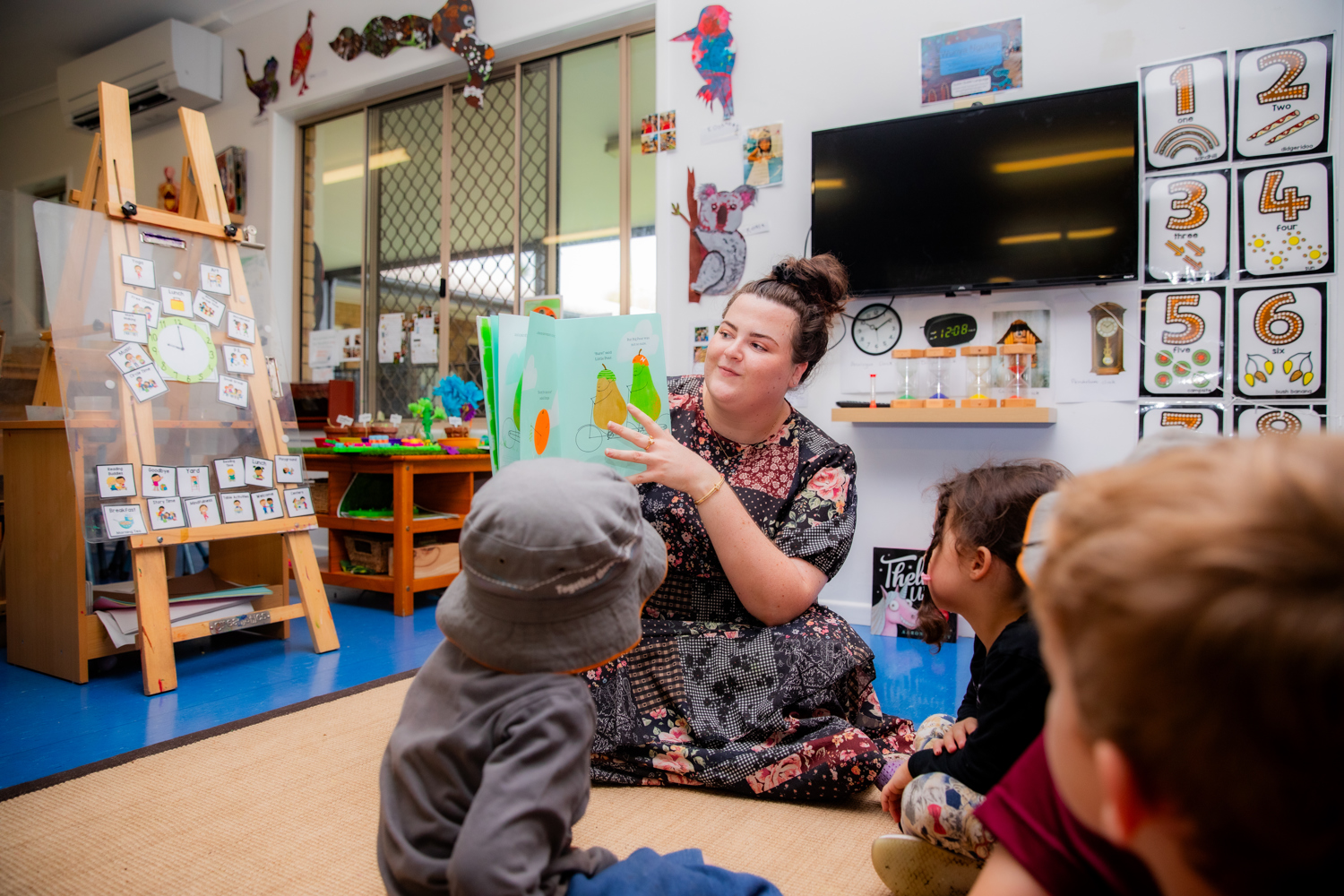Even as a teenager, Maddison "Maddie" King loved working with young children. But it took a couple years of studying a different degree, and one "very daunting leap" to make her realise her true life's purpose really did lie in the "most rewarding, creative, challenging and loving profession" that is working as an early childhood educator.
Maddie was halfway through a degree in creative industries at UniSC before switching to an early childhood degree, after realising she truly enjoyed working with young children.
“It was a difficult realisation for me to arrive at,” Maddie says, reflecting on her decision to switch degrees.
“I was halfway through a degree I truly enjoyed and was doing well at academically, but deep down I knew it would not fulfil my passion.
“The more I worked alongside children, the more I realised education wasn’t just passing on knowledge, it’s also supporting and guiding families and shaping the lives of children… I knew I would regret not at least trying the change.”

Bachelor of Education (Early Childhood)
Study early childhood education to qualify to work as a teacher in childcare, kindergarten and primary school. UniSC’s nationally accredited degree includes work placements for you to confidently transition from uni to the classroom.
This wasn’t the first time Maddie had felt the calling to work with young children. In high school, she started a Cert III in early childhood education, but dropped it in Year 11 as she had her “heart set on university,” so set her sights on getting a good OP score instead.
So, when the desire to work with young kids continued to call as Maddie made her way through uni, she decided to take the “very daunting leap” into primary education, which she soon changed to early childhood as it gave her the flexibility of gaining an Early Childhood Teaching Registration and Queensland College of Teachers Registration.
“It was quite important for me to have the flexibility between education spaces,” she says.
Though her decision to study early childhood education meant fielding questions like, “are you sure that’s what you really want to do?”, Maddie said there were more people encouraging and reminding her of the positive impact she can have.
“Despite the criticism, it made me think of the wonderful teachers I had in my past and how they contributed to who I am as a young person… I hope someday to be that person for children.”
During her first university placement at a childcare centre, Maddie was offered a job which she says has been “extremely influential” on her professional and personal growth.
“Securing this job while on placement could potentially be the best part of my degree,” she says.
“My confidence has grown working in the industry, and being a part of a team that mentors me and is flexible with my university schedule has made such a difference to my uni experience.
“I can make real-world connections and understand the context to the things I am learning about in courses, and participate in class discussions with my peers to generate an even deeper level of learning between us – as most of us work in the industry.”
While juggling part-time work and full-time study can be challenging, Maddie says being immersed in industry has clear benefits in her conceptual understanding.
“I can apply my learning from uni into my work — it’s like placement every day – and creating connections with children, families and the community makes it worth it... I can see the influence I’m having on nurturing children and being a part of their learning journeys even before being fully qualified.”
Becoming an advocate for children is Maddie’s purpose, especially as she learns about the importance of the first five years.
“The first five years of brain development are the most influential and foundational for children’s holistic development… these years are desperately critical in developing lifelong learners, supporting children’s wellbeing, and involving them as citizens of this world,” Maddie says.
“Advocating for more recognition of the early childhood profession as more than just childminders and seeing the industry as educators laying the foundation for lifelong learning is important for me.”
Maddie’s passion is also on ‘bridging the gap,’ making the transition from kindy into school as smooth as possible, thereby setting children up for success as much as they possibly can.
“I have experienced the strong ties that local schools have to early learning centres, and how kindergarten can significantly help children prepare for their schooling transition,” she says.
“I truly think having these strong relationships between professions is in the best interest of the children at the centre of this all.”
Maddie admits it can feel disheartening constantly hearing and seeing headlines of teachers leaving the profession, whilst she is working hard to complete her degree to enter the profession.
“It's not an easy job, but no job ever is,” she says.
“We know there needs to be systemic change that values teachers and offers them the support they require… I hope that despite this it doesn't discourage anyone from joining the profession.
“It's worth it, I promise, it really is. It is the most rewarding, creative, challenging and loving profession."
“I'm lucky to be guided and mentored by my lecturers and my current team to keep growing, changing and adapting as a professional.
“I know I can get tired and overwhelmed but knowing I am an adult in a child's life where they feel safe to come to me for guidance, comfort and can share their joy in the simplest things helps me shift my perspective to remind me, if not me – then who else?”

Bachelor degrees (undergraduate programs)
Explore our degrees on offer.
Media enquiries: Please contact the Media Team media@usc.edu.au


